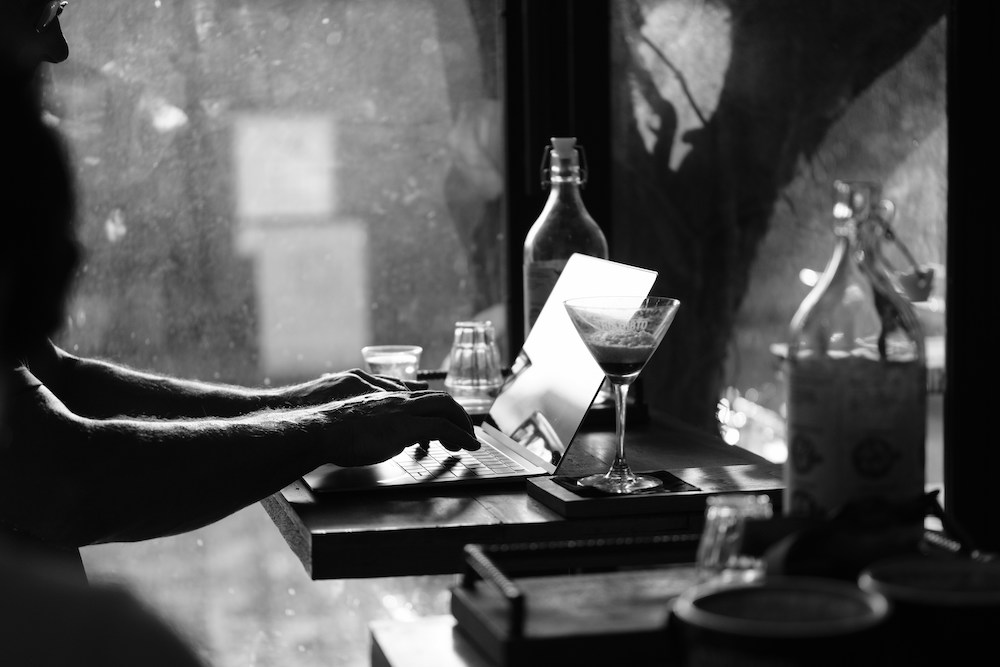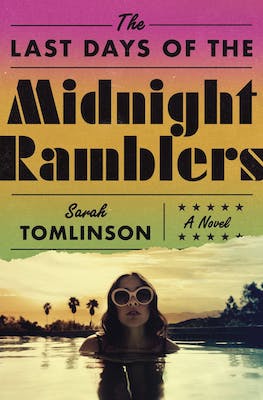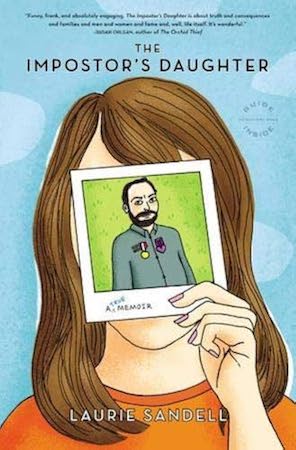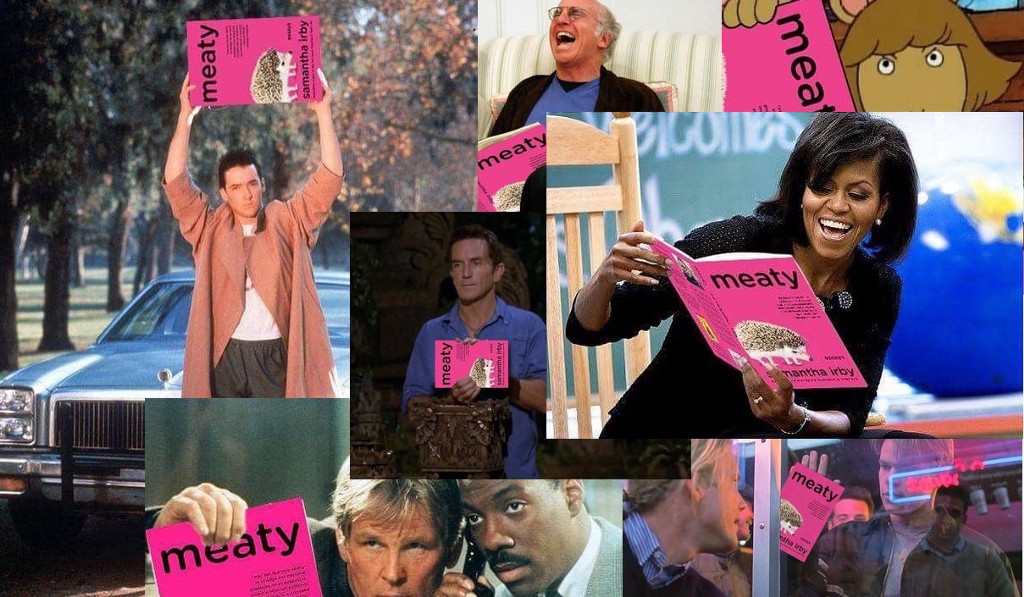Reading Lists
7 Books About Ghostwriters
Sarah Tomlinson recommends stories about the nature of celebrity, authenticity, representation, and legacy

When I was ghostwriting full-time, I produced twenty books in fourteen years. Thanks to a suggestion from my literary agent, I realized a ghostwriter might make a great heroine—they’re under tremendous pressure, often while adjacent to the fame machine—so Mari Hawthorn, the ghostwriter at the center of my debut novel The Last Days of The Midnight Ramblers was born. Mari is a cash-strapped ghost who lands a gig writing for Anke Berben, legendary model and style icon most famous for her romances with three members of classic rock band the Midnight Ramblers—not to mention, Anke might have had a role in the death of the band’s founder, who was her husband at the time. Mari is hellbent on getting to the bottom of the rock and roll mystery, for the book and for Anke, without getting pulled in too deep herself.
Because I find ghostwriters so intriguing, I compiled this reading list full of ghosts. In it, I discuss what I believe these characters can teach us, not just about the nature of celebrity, authenticity, legacy, and representation, but also, about the subtle power dynamics that go into all relationships—professional and personal.
The seven books gathered here all use the lens of authorship in deft and moving ways that not only gave me a fresh perspective on my own writing, but also complicated my world view, as most successful novels do. Although these works vary in style, tone, and intention, they all share an interest in how who tells a story impacts the veracity of that tale.
The Imposter’s Daughter: A True Memoir by Laurie Sandell
In this graphic memoir, Laurie Sandell describes in troubling but hilarious detail the exciting (and destabilizing) experience of being raised by a narcissistic liar. Her ability to stay close to her dad and make him feel emotionally safe prepped her to excel as a celebrity journalist in the era when women’s magazines ran in-depth and (at least theoretically) intimate profiles of female stars. But while she was scaling impressive career heights, such as a high-cache interview with Ashley Judd, Sandell was unraveling personally. She was crippled by anxiety and self-doubt, which she self-medicated until she needed rehab. While she wasn’t specifically working as a ghostwriter, I was galvanized by the courage and clear-sightedness of her ruminations. A fascinating and deeply moving coming of age story that will resonate with anyone interested in reconsidering our ideas of persona and celebrity.
Who Is Maud Dixon? by Alexandra Andrews
For me, the thrillers that are especially delicious delve into relationships between women, particularly those that involve matters of intimacy, power, success, and identity. This book delivers a smart, insider look at the publishing world, as experienced by Florence, an editorial assistant and aspiring writer whose deep ambition lands her a plum gig working for the cultishly adored writer Maud Dixon. While Maud is widely admired, she is a pseudonymous recluse, so the job gives Florence unique insider access. While it doesn’t feature a ghostwriter, per se, it does offer plenty of observations on fame and success—who deserves it and why—and to what lengths people might go to maintain it once they’ve arrived. It also looks at what it means to author a story, and to receive credit for it, and how much either ultimately matters to the writer behind it. Overlapping somewhat with the wonderfully dishy and dark Yellowface, although without its meditations on racial appropriation and representation, this book also revels in the inherent drama of a young writer pushed to the brink of morality and sanity by her jealousy and aspirations.
Verity by Colleen Hoover
In Verity, Lowen, is rescued from financial oblivion by ghostwriting for a comatose, bestselling novelist who is married to a muscular hottie who behaves chivalrously toward her in the opening scene. When she is tasked with finishing a contracted series while living in his remote home with his injured writer wife and their child, the descriptions of trying to coexist in a client’s household by observing as much as possible without being obtrusive captures a tricky aspect of some ghostwriting assignments. And when Lowen discovers the wife’s secret autobiography filled with terrible confessions just as she begins to fall for the hot husband, the tension mounts with delicious intensity. The book is propulsive and gave me naughty feelings similar to when I snuck home the V.C. Andrews novels that got passed around in elementary school. I read this book during the fraught weeks when my agent had my debut novel out on submission to editors, and it kept my mind and imagination occupied during a tense time when I was finding it hard to do almost anything else.
Seven Days in June by Tia Williams
This book includes neither a ghostwriter nor a character hiding her identity, but I found myself thinking about the story a great deal as I chewed on what the other titles on this list had in common: questions of selfhood, authenticity, story ownership. The heroine Eva is a hilarious and compelling character, even as she struggles with generational trauma, debilitating migraines, raising a precocious pre-teen daughter on her own, shining as a member of Brooklyn’s Black Literati, and blowing the deadline for the latest book in her supernatural erotica series. When a man from her past, Shane, a notoriously gifted and troubled writer, surprises her with a public reunion at a book appearance, the events of the seven days they spent together as teenagers reemerge. The book’s dual timelines are deftly controlled and build equal drama and suspense. Ultimately, as with many of the ghostwriter characters, Eva must make peace with her whole self, which she has hidden behind the persona of her series’ character and her own persona as a writer. At once deep, and a total page turner, this is one of those books you wish you hadn’t read, so you could go back and discover it for the first time.
Impersonation by Heidi Pitlor
Allie, the ghostwriter at the heart of Heidi Pitlor’s witty social satire Impersonation is undergoing an awkward personal transition, along with the rest of the country. It’s late 2016 and she and her fellow citizens are adjusting to the new president and what it means to them personally and as Americans. She is a midlevel ghostwriter who has penned eleven books, supporting herself and her son, who she is raising alone. While she has felt a bit squeamish about how she has helped her past clients publish a slightly improved version of their truth, she’s never had her morality tested before. Her world is exploded by two back-to-back projects, the first a TV mega-star stud, who gets brought down in the lead up to the #MeToo movement and the second a feminist influencer, turned Senate candidate, who hires Allie to write a memoir about raising her son to be a feminist ally. Pitlor deftly uses Allie’s own vulnerabilities as a mom on the precipice of financial chaos to help the reader sympathize with her sometimes-questionable choices and to spotlight why women and other disenfranchised members of society would need a politician to take up their causes. Always keenly observed, this book manages to keep its sense of humor, even amid very dark days.
Trust by Hernan Diaz
Trust is an intricately constructed, gorgeously written examination of the relationship between a ghostwriter and a turn of the century captain of industry. It uses the elegant-yet-claustrophobic prose of its opening two books-within-a-book to capture the writing of that period and the challenges of being a ghostwriter tasked with a client whose desire to improve the narrative of his life isn’t quite as inconspicuous as he might believe. The book includes many astute lines about human relationships, especially the power dynamics between men and women and ghostwriter and client. It is also wise about ambition—financial, social, and creative—and in particular, the dance a ghostwriter must sometimes do between who their clients actually are and who they wish they were. Ultimately, through its elegant nested-doll construction, Trust manages to get at something deeper about the redemptive power of having control over our own stories, The book’s milieu and characters are very different from anything I have ever lived in my professional life. And yet, it felt true to me, not just about ghostwriting, but about why we seek out the stories of those who have shaped culture, and how we should always remember to examine what narratives they’re putting forth, for whose benefit, and why.
The Dead Romantics by Ashley Poston
In one sense, books are books are books. From another perspective, there is so much distance between the celebrity memoirs I’ve penned, and the romance novels ghosted by the heroine of this book that I almost felt like I was learning about a different career. For starters, I have only ghostwritten one novel, which in my experience, is harder and more work than ghosting memoirs, which are mostly based on detailed conversations about your clients’ lives. Also, while I always care deeply about my clients and want to do my best for them—not to mention readers—it can be helpful that it’s not my story, as it gives me a bit of distance and perspective that can make the writing and narrative stronger. However, for Florence, the ghost in The Dead Romantics, recent heartbreak means she no longer believes in love, so she keeps writing hilarious scenes where her star-crossed lovers have something like a “meet ugly,” rather than a “meet cute.” What fabulous narrative pressure for her to face. And the character is superbly likeable—funny and down-to-earth with a secret talent that I didn’t see coming and won’t give away. When she must return to her childhood home, in a quaint but modern Southern town, the world building is surprising and delightful. Plus, it’s amusing how her family members keep trying to get her to admit she’s ghosting for Nora Ephron or Stephanie Meyers. And if you’re a Regency period nerd like me, you’ve gotta love Romantic banter about whether the “Shelley” in question would be Mary or Percy Bysshe. For anyone curious about ghostwriting (especially fiction) or interested in complex (but smoking hot) coming of age stories set against a background of family drama.










